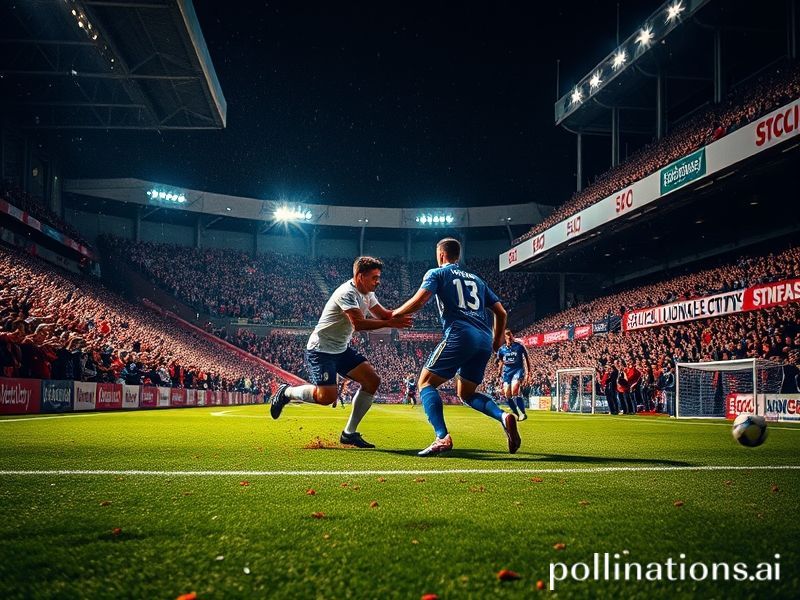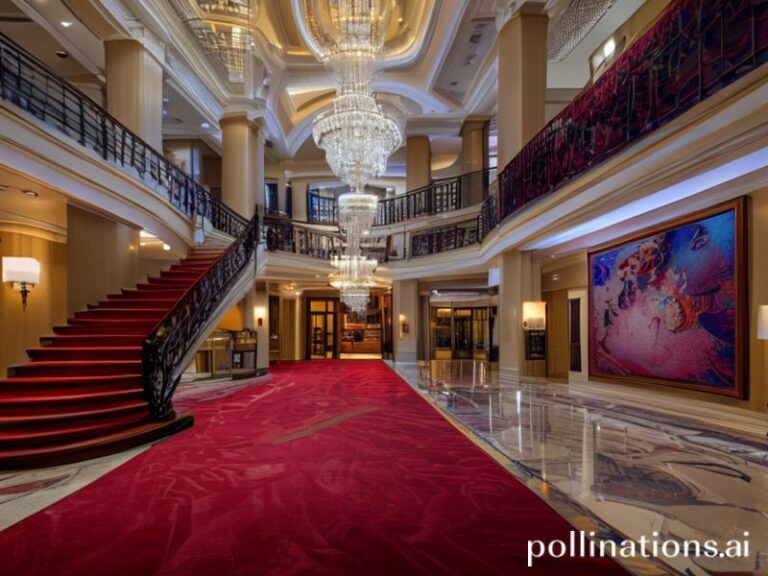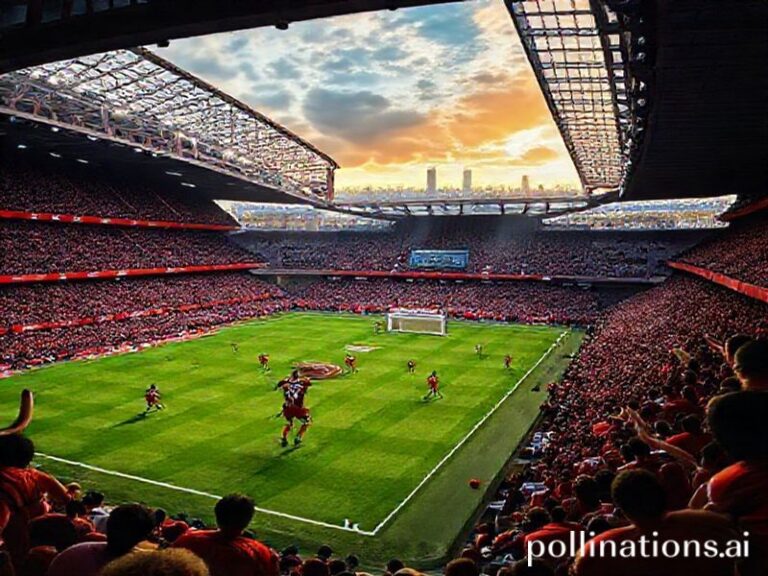When Lincoln Met Chelsea: David, Goliath, and the Global Theatre of Carabao Cup Delusion
Lincoln City vs Chelsea: A Tale of Two Cities, One Carabao Cup, and the Slow Death of Romantic Football
By Our Man in the Departure Lounge
The world awoke this morning to discover that Lincoln City—population 103,000, famous for a cathedral, a sausage, and the crushing sense that ambition peaked circa 1215—had been invited onto the same pitch as Chelsea, a club whose annual amortisation schedule rivals the GDP of several UN members. The occasion was the Carabao Cup, a tournament so bloated with sponsorship that even the energy-drink executives look embarrassed when the trophy is hoisted. And yet, for 90 minutes plus whatever VAR felt like adding, this was the closest thing planet football has to a morality play: hedge-fund modernity versus market-town nostalgia, live on pay-per-view.
From Jakarta to Johannesburg, armchair philosophers toggled between streams, half-expecting Lincoln’s squad to arrive on a hay cart pulled by social-media interns. Instead they rolled up in a sensible coach with Wi-Fi, because even semi-professional footballers have Spotify playlists to curate. Chelsea, meanwhile, materialised in that shade of blue which Pantone officially calls “Oligarch Midnight.” Their bench alone cost more than the entire Lincolnshire agricultural subsidy for 2024, and still they required extra time to finish the job. Somewhere in Davos, a plutocrat sneezed.
Global television executives took notes. The match aired across five continents, translated into 27 languages, and still nobody could explain the offside rule to a viewer in Ulan Bator. Ratings spiked in countries where the phrase “giant-killing” is understood literally—Nepal tuned in hoping to see actual giants—and dipped wherever the concept of romantic football has been replaced by algorithmic betting slips. An enterprising streaming platform in Lagos ran a ticker at the bottom: “If Lincoln score, your data bundle doubles.” They lost connectivity at 1-0, which felt fitting.
The geopolitical metaphors wrote themselves. Lincoln lined up in a formation last seen on a medieval tapestry; Chelsea pressed like a tech conglomerate acquiring start-ups. Each misplaced pass by the minnows was a Brexit negotiation, every Chelsea sideways pass a Central Bank interest-rate decision—technically correct, spiritually vacuous. When the Premier League side finally scored, the celebration had all the spontaneous joy of a quarterly earnings call. The Lincoln fans, outsinging a crowd four times their size, sounded like the last reel of a Ken Loach film sponsored by existential dread.
Bookmakers in Macau reported a 300 percent surge in micro-bets on throw-in counts, proving that late-stage capitalism can monetise absolutely anything except human happiness. In Qatar, analysts debated whether Lincoln’s centre-back could survive a full season in the Gulf heat, blissfully ignoring that he’s a part-time PE teacher whose other job involves stopping Year 9 from vaping behind the bike sheds. Meanwhile, the official Chelsea Twitter account posted a graphic so polished it could run for office in several Eastern European nations, captioned “Relentless.” The replies were less diplomatic, comparing the performance to a malfunctioning Tesla on autopilot.
And yet, for one night, the world remembered why it bothers. Not because an upset materialised—it didn’t—but because the possibility still exists. In an era when satellites track every blade of grass and youth academies hoover up toddlers like Roombas, the idea that a team assembled for the price of a Chelsea reserve goalkeeper’s watch could trade punches with the aristocracy remains the last reliable antidepressant. The final whistle blew, 3-1 to the oligarchs, and the commentary teams pivoted to the next revenue stream. Still, somewhere in Lincoln, a pub ran out of ale and optimism in equal measure, which is as close to utopia as 2024 allows.
So toast the Imps, applaud the Pensioners, and spare a thought for the rest of us, stuck replaying the highlights on a loop while the planet burns. Football’s cruel punchline is that the underdog never truly wins; he merely delays the inevitable. But on nights like this, delay feels like resistance, and resistance—like a well-hit consolation goal—is enough to make tomorrow slightly less intolerable.







